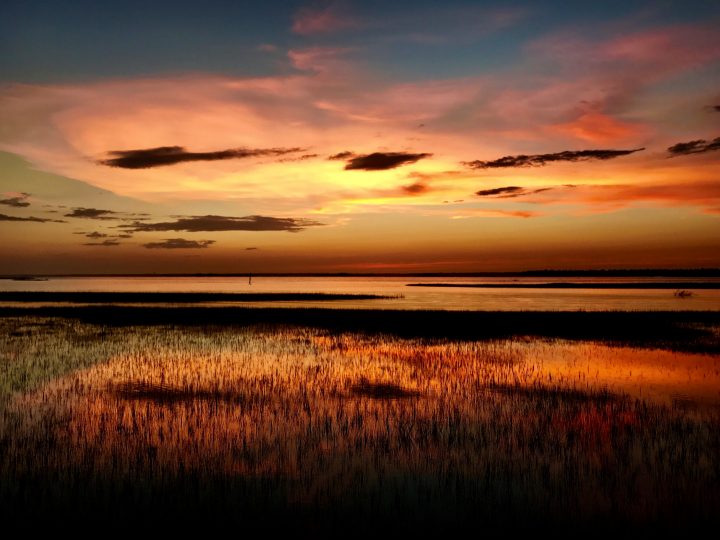
Two coastal research funding opportunities are now available for graduate students and undergrads.
Applications for the 2022 Graduate Fellowship in Estuarine Research, a partnership between Sea Grant and the Albemarle-Pamlico National Estuary Partnership, will be accepted until 5 p.m. Oct. 29.
Supporter Spotlight
The fellowship, which is up to $10,000, is for graduate students who propose research on one or more of the following broad focus areas: estuary spatial planning, submerged aquatic vegetation, coastal water quality, ecological flows and wetlands. The applied research must be within the North Carolina portion of the APNEP management area, which includes most of the northeastern region of the state.
Sea Grant is also accepting applications until 5 p.m. Oct. 29 for its inaugural Coastal Resilience Team Competition. The program will provide up to $20,000 for teams to conduct two-year projects that will lead to more resilient habitats and communities on the North Carolina coastal plain.
2022 Fellowship
Graduate students must propose hypothesis-based research within the North Carolina portion of the APNEP management area. Proposed work should relate to the APNEP Comprehensive Conservation and Management Plan and to North Carolina Sea Grant’s Strategic Plan, as well as demonstrate a commitment to diversity, equity, and inclusion aligned with the visions of Sea Grant and APNEP.
Applicants should demonstrate how their work and related outreach will benefit underserved and underrepresented communities.
“We are excited to continue partnering with Sea Grant on this graduate fellowship opportunity, which helps support research that informs the conservation and management of the nation’s second largest estuarine system,” said Tim Ellis, APNEP’s quantitative ecologist, in a statement.
Supporter Spotlight
John Fear, Sea Grant deputy director, said the fellowship helps train the next generation of scientists.
“Providing opportunities for students of all backgrounds is an overarching aim of this fellowship,” Fear said. “We strongly encourage proposals from graduate students at Historically Black Colleges and Universities and from Minority Serving Institutions, as well as from graduate students from traditionally underserved and underrepresented communities.”
Complete instructions, including more information on focus areas for proposals for the 2022 graduate fellowship, are available online. For more information, contact Fear at jmfear@ncsu.edu or Ellis at tim.ellis@apnep.org.
Coastal Resilience Team Competition
Each team will include two to four members, including at least one graduate student, who will serve as the project lead, and at least one undergraduate, who will assist.
“This fellowship opportunity builds off the previous great work of graduate students who have focused on the impacts of sea level rise in North Carolina,” said Sarah Spiegler, North Carolina Sea Grant’s coastal resilience specialist. “It’s vital that we continue research that addresses how to become more resilient to the impacts of climate change, and I look forward to a student-led team taking on this challenge.”
Officials encourage proposals from teams that include students at historically Black colleges and universities and at minority-serving institutions, and/or students from traditionally underserved and underrepresented communities.
Each team will conduct research that addresses one or more of these focus areas:
- The impacts of higher groundwater levels on forest, agriculture and community infrastructure.
- How changing precipitation patterns impact salinity levels in estuarine systems.
- The impact of higher temperatures on submerged aquatic vegetation communities in North Carolina.
- How coastal communities can engage underserved populations to better prepare them for future disasters.
- How aquaculture practices can buffer the industry against disasters.
- The economic impact of climate change on North Carolina coastal communities, including the effects on different sectors and populations.
- Additional research topics that address how coastal North Carolina can become more resilient to the impacts of climate change.
Proposals should explain how the proposed teams’ research and related outreach will benefit underserved and underrepresented communities. Access the full request for proposals online.
The winning team will present their work to North Carolina Sea Grant’s advisory board. Sea Grant’s science communicators also will work with the winners to publicize the team’s research through an array of products and media, as appropriate.







